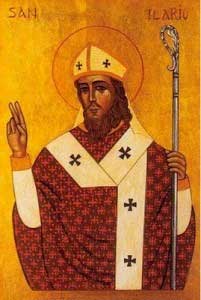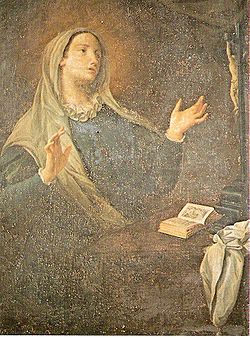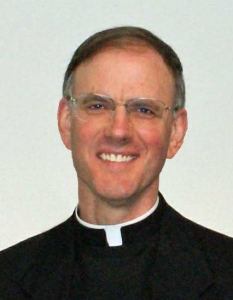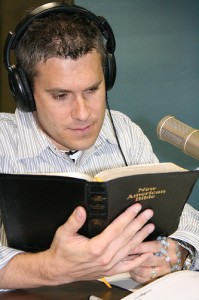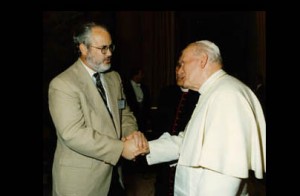The First Thursday in Ordinary Time – from the Gospel of Mark the full reading and reflection
“People came to Jesus from every quarter”
an excerpt from today’s reflection by Don Schwager: 
This leper did something quite remarkable. He approached Jesus confidently and humbly, expecting that Jesus could and would heal him. Normally a leper would be stoned or at least warded off if he tried to come near a rabbi. Jesus not only grants the man his request, but he demonstrates the personal love, compassion, and tenderness of God in his physical touch. The medical knowledge of his day would have regarded such contact as grave risk for incurring infection. Jesus met 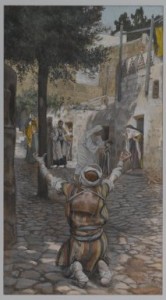 the man’s misery with compassion and tender kindness. He communicated the love and mercy of God in a sign that spoke more eloquently than words. He touched the man and made him clean – not only physically but spiritually as well.
the man’s misery with compassion and tender kindness. He communicated the love and mercy of God in a sign that spoke more eloquently than words. He touched the man and made him clean – not only physically but spiritually as well.
How do you approach those who are difficult to love, or who are shunned by others because they are deformed or have some defect? Do you show them kindness and offer them mercy and help as Jesus did? The Lord is always ready to show us his mercy and to free us from whatever makes us unclean, unapproachable, or unloving towards others.
Lord Jesus, inflame my heart with your love and make me clean and whole in body, mind, and spirit. May I never doubt your love nor cease to tell others of your mercy and compassion.”
for the full reflection visit : Daily Reading and Meditation
Tags: catholic, catholic podcast, catholic prayer, cathollc spirituality, don schwager, gospel of mark, leper
This entry was posted on Thursday, January 13th, 2011 at 12:45 am
You can follow any responses to this entry through the RSS 2.0 feed.
Born of wealthy polytheistic, pagan nobility, Hilary’s early life was uneventful as he married, had children (including Saint Abra), and studied on his own. Through his studies he came to believe in salvation through good works, then monotheism. As he studied the Bible for the first time, he literally read himself into the faith, and was converted by the end of the New Testament.
Hilary lived the faith so well he was made bishop of Poitiers from 353 to 368. Hilary opposed the emperor’s attempt to run Church matters, and was exiled; he used the time to write works explaining the faith. His teaching and writings converted many, and in an attempt to reduce his notoriety he was returned to the small town of Poitiers where his enemies hoped he would fade into obscurity. His writings continued to convert pagans.
“Obtain, O Lord, that I may keep ever faithful to what I have professed in the symbol of my regeneration, when I was baptized in the Father, in the Son and in the Holy Spirit. That I may worship you, our Father, and with you, your Son; that I may deserve your Holy Spirit, who proceeds from you through your Only Begotten Son… Amen”
Tags: blessed trinity, catholic, catholic podcast, catholic prayer, cathollc spirituality, doctor of the church, father of the church, st. hilary of poiters
This entry was posted on Thursday, January 13th, 2011 at 12:27 am
You can follow any responses to this entry through the RSS 2.0 feed.
The First Wednesday in Ordinary Time – from the Gospel of Mark the full reading and reflection
“They brought to Jesus all who were sick or possessed with demons”
an excerpt from today’s reflection by Don Schwager: 
Who do you take your troubles to? Jesus’ disciples freely brought their troubles to him because they found him ready and able to deal with any difficulty, affliction, or sickness which they encountered. When Simon brought Jesus to his home, his mother-in-law was instantly healed because Jesus heard Simon’s prayer. Jerome, an early church bible scholar and translator (c. 347-420), reflects on this passage:
“Can you imagine Jesus standing before your bed and you continue sleeping? It is absurd that you would remain in bed in his presence. Where is Jesus? He is already here offering himself to us. ‘In the middle,’ he says, ‘among you he stands, whom you do not recognize’ (Cf. John 1:26) ‘The kingdom of God is in your midst’ (Mark 1:15). Faith beholds Jesus among us. If we are unable to seize his hand, let us prostrate ourselves at his feet. If we are unable to reach his head, let us wash his feet with our tears. Our repentance is the perfume of the Savior. See how costly is the compassion of the Savior.â€
Do you allow Jesus to be the Lord and healer in your personal life, family, and community? Approach him with expectant faith. God’s healing power restores us not only to health but to active service and care of others. There is no trouble he does not want to help us with and there is no bondage he can’t set us free from. Do you take your troubles to him with expectant faith that he will help you?
“Lord Jesus Christ, you have all power to heal and to deliver from harm. There is no trouble nor bondage you cannot overcome. Set me free to serve you joyfully and to love and serve others generously. May nothing hinder me from giving myself wholly to you and to your service.”
for the full reflection visit : Daily Reading and Meditation
Tags: catholic, catholic podcast, catholic prayer, cathollc spirituality, demons, don schwager, gospel of mark, healing and wholeness
This entry was posted on Wednesday, January 12th, 2011 at 8:03 pm
You can follow any responses to this entry through the RSS 2.0 feed.
VATICAN CITY, 12 JAN 2011 (vatican.va) –
Dear Brothers and Sisters,
After Catherine of Siena and Catherine of Bologna, today I would like to speak to you about another Saint: Catherine of Genoa, known above all for her vision of purgatory. The text that describes her life and thought was published in this Ligurian city in 1551. It is in three sections: her Vita [Life], properly speaking, the Dimostratione et dechiaratione del purgatorio — better known as Treatise on purgatory — and her Dialogo tra l’anima e il corpo (cf. Libro de la Vita mirabile et dottrina santa, de la beata Caterinetta da Genoa. Nel quale si contiene una utile et catholica dimostratione et dechiaratione del purgatorio, Genoa 1551). The final version was written by Catherine’s confessor, Fr Cattaneo Marabotto.
Catherine was born in Genoa in 1447. She was the youngest of five. Her father, Giacomo Fieschi, died when she was very young. Her mother, Francesca di Negro provided such an effective Christian education that the elder of her two daughters became a religious.
When Catherine was 16, she was given in marriage to Giuliano Adorno, a man who after various trading and military experiences in the Middle East had returned to Genoa in order to marry.
Married life was far from easy for Catherine, partly because of the character of her husband who was given to gambling. Catherine herself was at first induced to lead a worldly sort of life in which, however, she failed to find serenity. After 10 years, her heart was heavy with a deep sense of emptiness and bitterness.
A unique experience on 20 March 1473 sparked her conversion. She had gone to the Church of San Benedetto in the monastery of Nostra Signora delle Grazie [Our Lady of Grace], to make her confession and, kneeling before the priest, “receivedâ€, as she herself wrote, “a wound in my heart from God’s immense loveâ€. It came with such a clear vision of her own wretchedness and shortcomings and at the same time of God’s goodness, that she almost fainted.
Her heart was moved by this knowledge of herself — knowledge of the empty life she was leading and of the goodness of God. This experience prompted the decision that gave direction to her whole life. She expressed it in the words: “no longer the world, no longer sin†(cf. Vita Mirabile, 3rv). Catherine did not stay to make her Confession.
On arriving home she entered the remotest room and spent a long time weeping. At that moment she received an inner instruction on prayer and became aware of God’s immense love for her, a sinner. It was a spiritual experience she had no words to  describe ( cf. Vita Mirabile, 4r).
It was on this occasion that the suffering Jesus appeared to her, bent beneath the Cross, as he is often portrayed in the Saint’s iconography. A few days later she returned to the priest to make a good confession at last. It was here that began the “life of purification†which for many years caused her to feel constant sorrow for the sins she had committed and which spurred her to impose forms of penance and sacrifice upon herself, in order to show her love to God.
On this journey Catherine became ever closer to the Lord until she attained what is called “unitive lifeâ€, namely, a relationship of profound union with God.
In her Vita it is written that her soul was guided and instructed from within solely by the sweet love of God which gave her all she needed. Catherine surrendered herself so totally into the hands of the Lord that she lived, for about 25 years, as she wrote, “without the assistance of any creature, taught and governed by God alone†(Vita, 117r-118r), nourished above all by constant prayer and by Holy Communion which she received every day, an unusual practice in her time. Only many years later did the Lord give her a priest who cared for her soul.
Catherine was always reluctant to confide and reveal her experience of mystical communion with God, especially because of the deep humility she felt before the Lord’s graces. The prospect of glorifying him and of being able to contribute to the spiritual journey of others alone spurred her to recount what had taken place within her, from the moment of her conversion, which is her original and fundamental experience.
The place of her ascent to mystical peaks was Pammatone Hospital, the largest hospital complex in Genoa, of which she was director and animator. Hence Catherine lived a totally active existence despite the depth of her inner life. In Pammatone a group of followers, disciples and collaborators formed around her, fascinated by her life of faith and her charity.
Indeed her husband, Giuliano Adorno, was so so won over that he gave up his dissipated life, became a Third Order Franciscan and moved into the hospital to help his wife.
Catherine’s dedication to caring for the sick continued until the end of her earthly life on 15 September 1510. From her conversion until her death there were no extraordinary events but two elements characterize her entire life: on the one hand her mystical experience, that is, the profound union with God, which she felt as spousal union, and on the other, assistance to the sick, the organization of the hospital and service to her neighbour, especially the neediest and the most forsaken. These two poles, God and neighbour, totally filled her life, virtually all of which she spent within the hospital walls.
Dear friends, we must never forget that the more we love God and the more constantly we pray, the better we will succeed in truly loving those who surround us, who are close to us, so that we can see in every person the Face of the Lord whose love knows no bounds and makes no distinctions. The mystic does not create distance from others or an abstract life, but rather approaches other people so that they may begin to see and act with God’s eyes and heart.
Catherine’s thought on purgatory, for which she is particularly well known, is summed up in the last two parts of the book mentioned above: The Treatise on purgatory and the Dialogues between the body and the soul. It is important to note that Catherine, in her mystical experience, never received specific revelations on purgatory or on the souls being purified there. Yet, in the writings inspired by our Saint, purgatory is a central element and the description of it has characteristics that were original in her time.
The first original passage concerns the “place†of the purification of souls. In her day it was depicted mainly using images linked to space: a certain space was conceived of in which purgatory was supposed to be located.
Catherine, however, did not see purgatory as a scene in the bowels of the earth: for her it is not an exterior but rather an interior fire. This is purgatory: an inner fire.
The Saint speaks of the Soul’s journey of purification on the way to full communion with God, starting from her own experience of profound sorrow for the sins committed, in comparison with God’s infinite love (cf. Vita Mirabile, 171v).
We heard of the moment of conversion when Catherine suddenly became aware of God’s goodness, of the infinite distance of her own life from this goodness and of a burning fire within her. And this is the fire that purifies, the interior fire of purgatory. Here too is an original feature in comparison with the thought of her time.
In fact, she does not start with the afterlife in order to recount the torments of purgatory — as was the custom in her time and perhaps still is today — and then to point out the way to purification or conversion. Rather our Saint begins with the inner experience of her own life on the way to Eternity.
“The soulâ€, Catherine says, “presents itself to God still bound to the desires and suffering that derive from sin and this makes it impossible for it to enjoy the beatific vision of Godâ€. Catherine asserts that God is so pure and holy that a soul stained by sin cannot be in the presence of the divine majesty (cf. Vita Mirabile, 177r).
We too feel how distant we are, how full we are of so many things that we cannot see God. The soul is aware of the immense love and perfect justice of God and consequently suffers for having failed to respond in a correct and perfect way to this love; and love for God itself becomes a flame, love itself cleanses it from the residue of sin.
In Catherine we can make out the presence of theological and mystical sources on which it was normal to draw in her time. In particular, we find an image typical of Dionysius the Areopagite: the thread of gold that links the human heart to God himself. When God purified man, he bound him with the finest golden thread, that is, his love, and draws him toward himself with such strong affection that man is as it were “overcome and won over and completely beside himselfâ€.
Thus man’s heart is pervaded by God’s love that becomes the one guide, the one driving force of his life (cf. Vita Mirabile, 246rv). This situation of being uplifted towards God and of surrender to his will, expressed in the image of the thread, is used by Catherine to express the action of divine light on the souls in purgatory, a light that purifies and raises them to the splendour of the shining radiance of God (cf. Vita Mirabile, 179r).
Dear friends, in their experience of union with God, Saints attain such a profound knowledge of the divine mysteries in which love and knowledge interpenetrate, that they are of help to theologians themselves in their commitment to study, to intelligentia fidei, to an intelligentia of the mysteries of faith, to attain a really deeper knowledge of the mysteries of faith, for example, of what purgatory is.
With her life St Catherine teaches us that the more we love God and enter into intimacy with him in prayer the more he makes himself known to us, setting our hearts on fire with his love.
In writing about purgatory, the Saint reminds us of a fundamental truth of faith that becomes for us an invitation to pray for the deceased so that they may attain the beatific vision of God in the Communion of Saints (cf. Catechism of the Catholic Church, n. 1032).
Moreover the humble, faithful and generous service in Pammatone Hospital that the Saint rendered throughout her life is a shining example of charity for all and an encouragement, especially for women who, with their precious work enriched by their sensitivity and attention to the poorest and neediest, make a fundamental contribution to society and to the Church. Many thanks.
For more on St. Catherine of Genoa visit Discerning Hearts post St. Catherine of Genoa…it’s all about Divine Love
Tags: benedict xvi, Catherine of Genoa, catholic, catholic podcast, catholic prayer, cathollc spirituality, experience, love, mystic, mystic of the Church, mystical communion, mystical experience, purgatory, relationship, souls in purgatory, st catherine of genoa, Vita Mirabile, women of the middle ages
This entry was posted on Wednesday, January 12th, 2011 at 1:01 pm
You can follow any responses to this entry through the RSS 2.0 feed.
The First Tuesday in Ordinary Time – from the Gospel of Mark the full reading and reflection
“He has done all things well; he even makes the deaf hear and the dumb speak”
an excerpt from today’s reflection by Don Schwager: 
What is the significance of Jesus putting his fingers into the man’s ears? Gregory the Great, a church father from the 6th century, comments on this miracle: “The Spirit is called the finger of God. When the Lord puts his fingers into the ears of the deaf mute, he was opening the soul of man to faith through the gifts of the Holy Spirit.â€
The people’s response to this miracle testifies to Jesus’ great care for others: He has done all things well. No problem or burden was too much for Jesus’ careful consideration. The Lord treats each of us with kindness and compassion and he calls us to treat one another in like kind. The Holy Spirit who dwells within us enables us to love as Jesus loves. Do you show kindness and compassion to your neighbors and do you treat them with considerateness as Jesus did?
“Lord Jesus, fill me with your Holy Spirit and inflame my heart with love and compassion. Make me attentive to the needs of others that I may show them kindness and care. Make me an instrument of your mercy and peace that I may help others find healing and wholeness in you.”
for the full reflection visit : Daily Reading and Meditation
Tags: catholic, catholic podcast, catholic prayer, cathollc spirituality, don schwager, gospel message, gospel of mark
This entry was posted on Tuesday, January 11th, 2011 at 5:21 pm
You can follow any responses to this entry through the RSS 2.0 feed.
Fr. Mark Mossa is a joy to read and to speak with…he’s the kind of person who’d you love to set with at your favorite 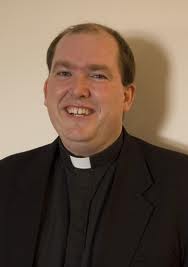 coffee shop and talk about whatever the day presents. His journey through life and the culture in “Already There: Letting God Find You” is one that nis not only the story of his journey, but we ultimately see glimpses of our own. The book will not disappoint, it will shed a beautiful light on our hearts and minds.
coffee shop and talk about whatever the day presents. His journey through life and the culture in “Already There: Letting God Find You” is one that nis not only the story of his journey, but we ultimately see glimpses of our own. The book will not disappoint, it will shed a beautiful light on our hearts and minds.
[powerpress]
Tags: catholic, catholic podcast, catholic prayer, cathollc spirituality, Mark Mossa, Mark Mossa S.J., st anthony messenger press
This entry was posted on Monday, January 10th, 2011 at 10:31 pm
You can follow any responses to this entry through the RSS 2.0 feed.
Of Spiritual Consolation. I call it consolation when some interior movement in the soul is caused, through which the soul comes to be inflamed with love of its Creator and Lord; and when it can in consequence love no created thing on the face of the earth in itself, but in the Creator of them all.
Likewise, when it sheds tears that move to love of its Lord, whether out of sorrow for one’s sins, or for the Passion of Christ our Lord, or because of other things directly connected with His service and praise.
Finally, I call consolation every increase of hope, faith and charity, and all interior joy which calls and attracts to heavenly things and to the salvation of one’s soul, quieting it and giving it peace in its Creator and Lord.
[powerpress]
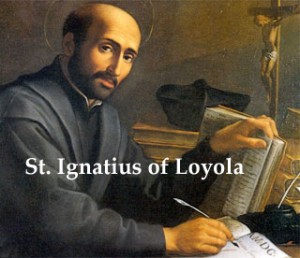 The Discernment of Spirits: Setting the Captives Free – Serves as an introduction to the Spiritual Exercises of St. Ignatius of Loyola
The Discernment of Spirits: Setting the Captives Free – Serves as an introduction to the Spiritual Exercises of St. Ignatius of Loyola
The 14 Rules for Discerning Spirits –
“The Different Movements Which Are Caused In The Soul”
as outlined by St. Ignatius of Loyola can be found here
Father Timothy M. Gallagher, O.M.V., was ordained in 1979 as a member of the Oblates of the Virgin Mary, a religious community dedicated to retreats and spiritual formation according to the Spiritual Exercises of St. Ignatius. Â Fr. Gallagher is featured on the EWTN series “Living the Discerning Life: Â The Spiritual Teachings of St. Ignatius of Loyola”.Â
For more information on how to obtain copies of Fr. Gallaghers’s various books and audio which are available for purchase, please visit  his  website: www.frtimothygallagher.org
 For the other episodes in this series visit
Fr. Timothy Gallagher’s “Discerning Hearts†page
Tags: catholic, catholic podcast, catholic prayer, cathollc spirituality
This entry was posted on Monday, January 10th, 2011 at 5:54 pm
You can follow any responses to this entry through the RSS 2.0 feed.
It’s a story of a young man named Giovanni, a pope named Pius IX and a time when….well I’ll let Omar Guiterrez tell the story...(he’s the best kind of “storyteller” because his stories are exciting, poignant, compelling and…true)
Guiterrez tell the story...(he’s the best kind of “storyteller” because his stories are exciting, poignant, compelling and…true)
An excerpt from Omar’s Regnum Novum post entitled “Giovanni and His Rome Beneath the Surface”:
It would behoove you to know that at this time in history, not too much unlike our own, the idea that the Catholic Church as we know it actually existed before the Middle Ages was an idea largely held to be ridiculous. Certainly there was a Christianity. But surely nothing like the Church of Rome. The scathing writing of the Enlightenment thinkers from the late 18th and throughout the 19th centuries had convinced most people that the priesthood, and much more so the papacy, was a Roman Catholic myth, invented to justify their inherently corrupting hold on power. Any notion from the average man that these existed before the stupefyingly dark ages of Medieval ignorance was mere pious idiocy. Even before this time, Martin Luther wrote, in his book titled Against the Roman Papacy Instituted by the Devil (catchy title no?),
I am content to be able to say, since I have seen it and heard it at Rome, that it is unknown where in the city the bodies of Saint Peter and Paul are located, or even whether they are there at all. Even the Pope and the cardinals know very well that they do not know.
Yet, in this world of legends and stories Giovanni lived in youthful and pious bliss. So it was that one fine Spring day in 1849, the same year that the Communist Manifesto was published, and at the ripe old age of 22, whilst the Roman birds sung their sweet songs of vernal joy to travelers on the ancient Appian road, Giovanni came across a piece of marble, which looked something very much like this:
Pieces of marble were constantly being found by farmers in the area. It is just a part of living in that world where history grows from the ground like the leaves of the acanthus plant that decorates the Mediterranean. This marble was probably dug up by the farmer attempting to ready his field for planting, and he tossed it toward the road. As fate – or should I say God’s good grace – would have it Giovanni, with all his peculiar knowledge, came across it on this day and at this hour. He examined the thing and began to wonder, as only a youthful lad can and does.
He recalled from his vast reading the legend of a Pope Cornelius who had been sentenced to exile by the new emperor Gallus. The emperor was a useless fellow, who had been put into power by the Roman army after the death of the Christian-hating Decius only to be killed by that same army two years later. Poor Pope Cornelius died in exile but was referred to in the martyrologies as not just a confessor but as a martyr. Furthermore, this Pope Cornelius, who reigned as the vicar of Christ from 251-253 was said to have been brought back to Rome and buried in the legendary Crypt of the Popes in the catacomb of St. Callistus. So perhaps, thought the youthful Italian lad, perhaps this is a marker for Pope Cornelius’ grave, which would mean that he’s buried in that field somewhere, which would mean that underneath lies not just the mythic Crypt of the Popes but also the original burial place of St. Cecilia, who was later moved to the Church in Trastevere that still bears her name, and all sorts of wonders within the famed – but never discovered – catacomb of St. Callistus. Yes, this was the reasoning of young Giovanni. This was the thought process of a young lad who had not lived long enough to know that silly dreams of an ancient Church were passé and never mentioned in polite company. These were the musings of a boy who dreamed to discover something true in an age of cynical doubting. And these were the notions that Giovanni Battista de Rossi took to Pope Pius IX.
To hear the whole story take a listen, and then visit Regnum Novum for the complete text and images…it’s get’s better…it’s SO touching and compelling…and it’s true
Tags: catholic, catholic podcast, catholic prayer, cathollc spirituality, Giovanni Battista Carlo de Rossi, papacy, pope pius ix, rome beneath the surface
This entry was posted on Monday, January 10th, 2011 at 3:26 am
You can follow any responses to this entry through the RSS 2.0 feed.
The First Monday in Ordinary Time – from the Gospel of Mark the full reading and reflection
“The kingdom of God is at hand”
an excerpt from today’s reflection by Don Schwager: 
When Jesus preached the gospel message he called others to follow as his disciples and he gave them a mission – “to catch people for the kingdom of God”. What kind of disciples did he choose? Smelly fishermen! In the choice of the first apostles we see a characteristic feature of Jesus’ work: he chose very ordinary people. They were non-professionals, had no wealth or position. They were chosen from the common people who did ordinary things, had no special education, and no social advantages. Jesus wanted ordinary people who could take an assignment and do it extraordinarily well. He chose these individuals, not for what they were, but for what they would be capable of becoming under his direction and power. When the Lord calls us to serve, we must not think we have nothing to offer. The Lord takes what ordinary people, like us, can offer and uses it for greatness in his kingdom. Do you believe that God wants to work through and in you for his glory?
 Jesus speaks the same message to us today: we will “catch people” for the kingdom of God if we allow the light of Jesus Christ to shine through us. God wants others to see the light of Christ in us in the way we live, speak, and witness the joy of the gospel. Paul the Apostles says, But thanks be to God, who in Christ Jesus always leads us in triumph, and through us spreads the fragrance of the knowledge of him everywhere. For we are the aroma of Christ to God among those who are being saved and among those who are perishing (2 Corinthians 2:15). Do you witness to those around you the joy of the gospel and do you pray for your neighbors, co-workers, and relatives that they may come to know the Lord Jesus Christ and grow in the knowledge of his love?
Jesus speaks the same message to us today: we will “catch people” for the kingdom of God if we allow the light of Jesus Christ to shine through us. God wants others to see the light of Christ in us in the way we live, speak, and witness the joy of the gospel. Paul the Apostles says, But thanks be to God, who in Christ Jesus always leads us in triumph, and through us spreads the fragrance of the knowledge of him everywhere. For we are the aroma of Christ to God among those who are being saved and among those who are perishing (2 Corinthians 2:15). Do you witness to those around you the joy of the gospel and do you pray for your neighbors, co-workers, and relatives that they may come to know the Lord Jesus Christ and grow in the knowledge of his love?
“Lord Jesus, you have called me personally by name, just as you called your first disciples, Simon, Andrew, James, and John. Help me to believe your word and follow you faithfully. Fill me with the joy of the gospel that your light may shine through me to many others.”
for the full reflection visit : Daily Reading and Meditation
Tags: calling peter and andrew, catholic, catholic podcast, catholic prayer, cathollc spirituality, don schwager, gospel of mark
This entry was posted on Monday, January 10th, 2011 at 12:01 am
You can follow any responses to this entry through the RSS 2.0 feed.
Episode 10 -The Way of Mystery: The Eucharist and Moral Living–  The Liturgy of the Eucharist part 2 : The True Meaning of “Full and Active Participation”…The Purpose of the Eucharistic Prayer
The Liturgy of the Eucharist part 2 : The True Meaning of “Full and Active Participation”…The Purpose of the Eucharistic Prayer
[powerpress]
Deacon James Keating, PhD, the director of Theological Formation for the Institute for Priestly Formation, located at Creighton University, in Omaha, is making available to â€Discerning Hearts†and all who listen, his series of programs entitled “The Way of Mysteryâ€.
 The Vatican II documents remind us that the spiritual journey is not made in a vacuum, that God has chosen to save us, not individually, but as The People of God. The Eucharist must help Christians to make their choices by discerning out of Christ’s paschal mystery. For this process to take place, however, Christians must first understand how the Eucharist puts them in touch with Christ’s passion, death, and resurrection, and what concrete implications being in touch with this mystery has for their daily lives.
The Vatican II documents remind us that the spiritual journey is not made in a vacuum, that God has chosen to save us, not individually, but as The People of God. The Eucharist must help Christians to make their choices by discerning out of Christ’s paschal mystery. For this process to take place, however, Christians must first understand how the Eucharist puts them in touch with Christ’s passion, death, and resurrection, and what concrete implications being in touch with this mystery has for their daily lives.
For more information on the “Institute of Priestly Formation†and for other material available by Deacon Keating, just click here
Don’t forget to pickup a copy of “Communion with Christ†, it is one of the best audio sets on prayer…ever!
Check out Deacon Keating’s “Discerning Heart†page
Tags: catholic, catholic podcast, catholic prayer, cathollc spirituality, choices, communion, creighton university, deacon, Deacon James Keating, Deacon Keating, eucharistic prayer, institute for priestly formation, james keating, liturgy, paschal mystery, theological formation, vatican ii documents, way of mystery
This entry was posted on Sunday, January 9th, 2011 at 12:10 am
You can follow any responses to this entry through the RSS 2.0 feed.
The Baptism of the Lord – from the Gospel of Matthew the full reading and reflection
This is my beloved Son, with whom I am well pleased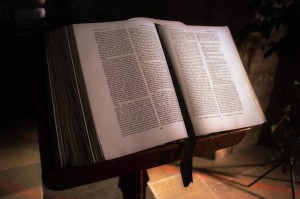
an excerpt from today’s reflection by Don Schwager:
John preached a baptism of repentance for the forgiveness of sins (Luke 3:3). Why did Jesus, the Sinless One, submit himself to John’s baptism? In this humble submission we see a foreshadowing of the “baptism†of his bloody death upon the cross. Jesus’ baptism is the acceptance and the beginning of his mission as God’s suffering Servant. He allowed himself to be numbered among sinners. Jesus submitted himself entirely to his Father’s will. Out of love he consented to this baptism of death for the remission of our sins. Do you know the joy of trust and submission to God?
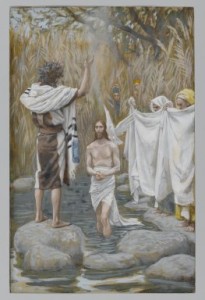 The Father proclaimed his entire delight in his Son and spoke audibly for all to hear. The Holy Spirit, too, was present as he anointed Jesus for his ministry which began that day as he rose from the waters of the Jordan river. Jesus will be the source of the Spirit for all who come to believe in him. At his baptism the heavens were opened and the waters were sanctified by the descent of Jesus and the Holy Spirit, signifying the beginning of a new creation.
The Father proclaimed his entire delight in his Son and spoke audibly for all to hear. The Holy Spirit, too, was present as he anointed Jesus for his ministry which began that day as he rose from the waters of the Jordan river. Jesus will be the source of the Spirit for all who come to believe in him. At his baptism the heavens were opened and the waters were sanctified by the descent of Jesus and the Holy Spirit, signifying the beginning of a new creation.
“Lord Jesus, fill me with your Holy Spirit and inflame my heart with the joy of the gospel. May I find joy in seeking to please you just as you found joy in seeking to please your Father”.
for the full reflection visit : Daily Reading and Meditation
Tags: baptism of the lord, catholic, catholic podcast, catholic prayer, cathollc spirituality, don schwager, gospel of matthew
This entry was posted on Sunday, January 9th, 2011 at 12:03 am
You can follow any responses to this entry through the RSS 2.0 feed.
1. What Biblical verses deal with abortion? My supposedly Christian friends think abortion is okay and I need some passages to help explain why abortion is so wrong.
2. I am really trying to understand embryonic stem cell research, and I still do not understand why the Catholic church is against it, if it is saving lives? Can you help me?
[powerpress]
Mark Hart is an author, speaker, director and teacher, Mark’s work both written and spoken, is known across the country and world. While he serves as the Vice President of LIFE TEEN, he is known to tens of thousands simply as the “Bible Geek ®†Mark passionately echoes the gospel to all he encounters. He is as deep as he is funny, and his love for his wife and daughters is second only to his immense love for Jesus Christ.
Visit Mark at www.lifeteen.com
Tags: abortion, catholic, catholic podcast, catholic prayer, cathollc spirituality, embryonic stem cell research, life teen, Mark answers, mark hart
This entry was posted on Saturday, January 8th, 2011 at 11:23 pm
You can follow any responses to this entry through the RSS 2.0 feed.
The Saturday After Epiphany – from the Gospel of John the full reading and reflection
“This joy of mine is now full“
an excerpt from today’s reflection by Don Schwager:
Do you know the joy of the Lord? When the associates of John the Baptist complain that all are now going to Jesus, John in his characteristic humility exclaimed that he was not the Messiah but only the messenger sent to prepare his way. John describes the Messiah as the Bridegroom and himself as the friend of the Bridegroom. The image of marriage and the wedding feast is used throughout the scriptures to describe God’s joy in his people, who are regarded as his bride. As the bridegroom rejoices over the bride, so shall your God rejoice over you (Isaiah 62:5). John acted as the best man in arranging the marriage and in making preparations for the marriage feast. John and his disciples rejoice that the Bridegroom has come to make his bride, the church, ready for the marriage feast. We see this fulfilled in the New Jerusalem in the marriage feast of the Lamb and his Bride (see Revelations 21-22). Do you look with joyful anticipation to the consummation of God’s plan for his people at the end of the ages?
“Lord Jesus, help me to fix my eyes on your kingdom and to pray with eager longing and with joyful hope for the day when your people will be fully united with you in the heavenly marriage feast. May there be no nothing in my life which might hinder me from giving you may all, you who are my joy and life”
for the full reflection visit : Daily Reading and Meditation
Tags: catholic, catholic podcast, catholic prayer, cathollc spirituality, don schwager, gospel of john, john the baptist, Lord Jesus, marriage feast
This entry was posted on Saturday, January 8th, 2011 at 9:32 am
You can follow any responses to this entry through the RSS 2.0 feed.
Show 14 – Women Healed – Infertility
Women Healed! An important turning point in the series, as Dr. Hilgers explorers how a great many of the medical conditions experienced by women (and which effect men in an indirect way) can be understood and healed: first up, infertility. IVF (in vitro fertilization) isn’t the answer…find out why.
“Your Fertility Care Consultâ€
with Dr. Thomas Hilgers, founder of the Pope Paul VI Institute
for The Study of Human Reproduction
hosted by Kris McGregor
[powerpress]
Tags: catholic, catholic podcast, catholic prayer, cathollc spirituality, creighton model, dr. thomas hilgers, fertility care, Fertility Care Consult, human reproduction, in vitro fertilization, ivf, kris mcgregor, NaPro Technology, pope paul vi institute
This entry was posted on Saturday, January 8th, 2011 at 5:47 am
You can follow any responses to this entry through the RSS 2.0 feed.
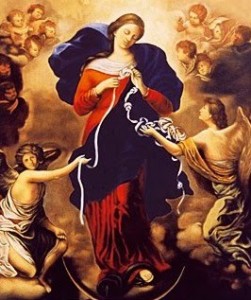 Click here for the complete text and audio for the Mary, Untier of Knots Novena
Click here for the complete text and audio for the Mary, Untier of Knots Novena
Sign of the Cross
Act of Contrition
Nineth day:
Bible reading:
« 14 All of these together gave themselves to constant prayer. With them were some women and also Mary, the mother of Jesus, and his brothers…» and »when the day of Pentecost arrived, all were filled with the Holy Spirit.» (Acts 1:14 and 2:1-4)
Brief Reflection:
Our Father sends the Holy Spirit on the feast of Pentecost , that will feed us in our faith. This is the same faith that with Mary’s maternal help, will remove the bonds that keep us prisoners. With the light of the Holy Spirit we see in meridian clarity which of our anguishes had our spirit trapped. The guidance of Saint Michael the Archangel has always been certain, Saint Gabriel the Archangel will announce my freedom and Saint Michael the Archangel, will protect me from any attack. The Evil one (the serpent), overpowered by the presence of Mary, lies at her feet, made into a useless knot, unable to touch us.
( Brief meditation: meditate with one decade of the Holy Rosary: One Our Father, 10 Hail Mary’s, One Glory be and the Prayer to “The Virgin Mary untier of Knotsâ€)
Tags: audio, blessed mother, catholic, catholic podcast, catholic prayer, cathollc spirituality, day of Pentecost, faith, freedom, holy spirit, mary undoer of knots, mary untier of knots, Saint Michael the Archangel, The Virgin Mary, virgin mary
This entry was posted on Saturday, January 8th, 2011 at 12:03 am
You can follow any responses to this entry through the RSS 2.0 feed.

